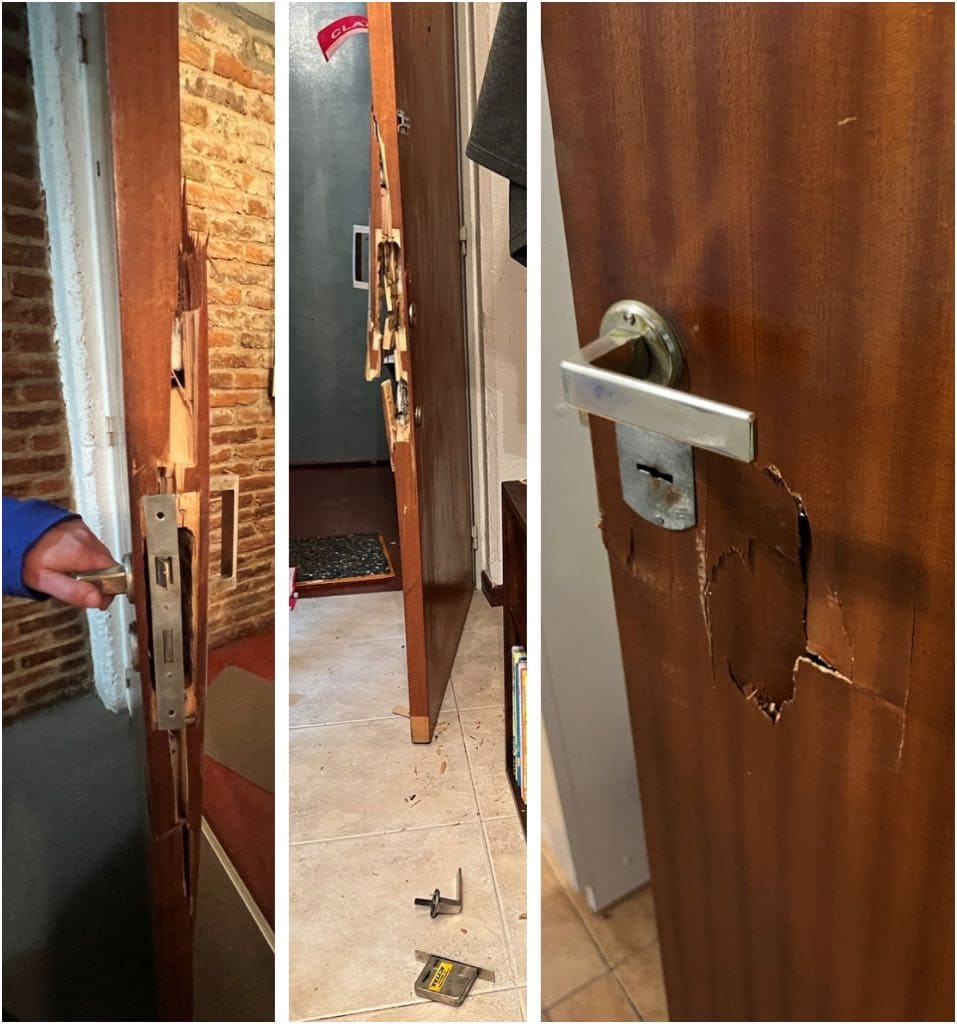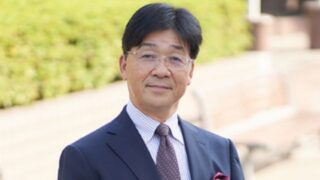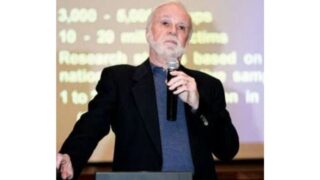In May 2023, a Canadian and an American academic visited Argentina to investigate what the local media called the “horror cult.” They found the story was different.
by Susan J. Palmer
Article 1 of 5.


Democracy is generally taken for granted in the Americas and Europe—but history and politics tell us that democracy is not a privilege fixed in stone. It is constantly being challenged, and tested by new laws that are seemingly benign. It has often been eroded by cultural trends that appear to support the downtrodden and defend human rights.
What happened to the members of a small metaphysical book club in Argentina is a striking example of how human rights and democratic principles can be effectively eroded in unexpected and surreptitious ways.
The Buenos Aires Yoga School (BAYS) emerged out of the philosophy teachings and discussion groups organized by Juan Percowicz in the early 1980s. Percowicz is a Jewish accountant (a widower now in his 80s and retired), who for decades has been cultivating his passion for books on mysticism and esoteric philosophy. His taste is eclectic, ranging from Hermann Hesse (1877–1962) to Paramahansa Yogananda (1893–1952); from George Ivanovich Gurdjieff (1866?–1949) to Dale Carnegie (1888–1955); and his concern is how to apply these philosophical principles to one’s daily life.
Percowicz had his own teacher of Raja Yoga (ancient Hindu philosophy, as opposed to the asanas or physical postures of Hatha Yoga), and became a teacher himself, attracting a circle of students that expanded to around 200 people. He founded BAYS, which has been meeting on a bi-weekly basis to discuss assigned readings. It is also a social club, because these meetings have featured shows—from comedy acts to amateur skits or poetry readings, to performances by professional musicians, actors and magicians—all members of BAYS.


This flourishing social club and artistic/spiritual movement was suddenly blighted by a sudden, violent, militarized raid.
On August 12, 2022 armored police with machine guns smashed in the front door of a cafe on Estado de Israel Avenue where a class on esoteric philosophy was in progress. Around fifty BAYS students were held at gunpoint—most of them nicely dressed elderly people in their 60s, 70s, and 80s.
The purpose of this raid was to find evidence of human trafficking, to arrest the perpetrators, and rescue the victims.
But despite the lack of any prior complaints from ex-members or self-described “victims” of BAYS—or any compelling “evidence” whatsoever—19 members were arrested and accused of criminal association, human trafficking, sexual exploitation and “money laundering connected with human trafficking.” They had achieved this by allegedly using “coercive persuasion” techniques (i.e. brainwashing) to enslave nine female BAYS students and pimp them to “rich and powerful men” for “cultic” fundraising purposes.
As one of the lawyers on BAYS’ defense team noted: “The suspects were sent to prison before a trial, before any evidence was produced. And most of them remained incarcerated for almost three months as part of an ongoing pre-trial ‘investigation’ on the basis of Law No 26.842 on Prevention and Punishment of Human Trafficking and Assistance to Victims of 19 December 2012.”


There is a special prosecutorial office in Argentina called PROTEX (Procuraduría para el Combate de la Trata y Explotación de Personas [English: Office of the Procurator for Combating the Trafficking and Exploitation of Persons]). It was set up in the wake of the new Argentinian Law 26.842 of 2012 against human trafficking. The political and intellectual forces behind the passing of this law are analyzed in assistant prosecutor Marisa S. Tarantino’s 2021 book. Recently, the Argentinian government has increased PROTEX’s powers and funding. PROTEX needs success stories for its annual reports.
In an unexpected coup, PROTEX, working in tandem with police SWAT teams and with Pablo Salum (Argentina’s one-man anticult movement), plus local television stations, launched a military-style police raid on the BAYS members-owned building, starting with the cafe.
After smashing in the door of the cafe on the ground floor of the building, the SWAT teams systematically proceeded up ten flights to forcefully search the 25 private apartments and professional offices of BAYS members. When the residents trapped in the cafe offered the policewoman in charge their door keys, they were rejected. After all, this was an important photo opportunity. It was “crime-control theatre.”
The aim was clear: the filming of the police operation would produce videos used to justify the crackdown ordered by the prosecutors of PROTEX.


Simultaneous aggressive raids were carried out that night at a total of fifty locations around Buenos Aires.
On the street outside the cafe, reporters were stationed to take photos of the handcuffed people as they were dragged out of the building and placed in paddy wagons. It appears that a few journalists knew about the raid even before it took place.
A video showing the heavily-armed “heroic” door-smashing police and the one-sided statement of the prosecutor was uploaded on YouTube just in time for the morning news about the yoga school BAYS, “la secta del horror” or “the horror cult” that had allegedly been operating an international prostitution ring for thirty years.
It is one situation to read in a distant country about a “cult” that has been busted for trafficking women—and quite another thing to fly to Buenos Aires and interview members of the said “cult” and listen to their side of the story. Most readers coming across the BAYS story in the news would probably think, “They must be guilty. After all, isn’t that what cults do—exploit people?” Some readers might even quote the proverb, “Where there’s smoke, there’s a fire.”
This research was conducted in Buenos Aires in May 2023 by myself and my research partner, Professor Holly Folk from Western Washington University. Our colleague Dr. Massimo Introvigne, who had previously written about BAYS, encouraged us to undertake this research; we were not paid for it, but our travel expenses to Argentina and accommodation costs were covered.
After spending eight days interviewing BAYS students (both the “perps” and the “victims” of human trafficking), the founder of BAYS, Juan Percowicz, and their lawyer, we concurred that the presumption of innocence should definitely apply here. None of these people were pimps, brainwashers, or human traffickers. Certainly, none of them were “victims”—except they all had the misfortune to be trapped in a Kafkaesque, bureaucratic nightmare.
One of the functions of PROTEX is to protect the victims. But these BAYS women complained they had been falsely labeled as “victims” and then punished for their mythical victimhood.
Each woman we interviewed in her own apartment described vividly her experience of the 12 August 2022 raid and its aftermath. Their accounts were quite consistent.


First, the door of each woman’s apartment had been smashed on the eve of the police raid. Second, they found that the police had searched their apartments, seizing gold jewelry, watches, paintings, computers, and stashes of cash. Third, over the next few days, their names, faces, addresses, and job information appeared in the media in salacious reports and videos on the “secta del horror.” The result was that most of these women lost their livelihoods. Or at least, their careers—in real estate, television production, acting, health clinics, sales motivational training, computer technology—were adversely affected.
Several women described post-raid symptoms of PTSD; of feeling insecure sleeping in their unlocked or doorless apartments; and a lack of confidence in dealing with their clients.
But mostly, these women were angry. As strong, independent feminists who worked hard all their lives to build their careers, they were insulted to be told they were “victims.” Most of them were involved in relationships of ten to twenty years with their boyfriend, partner, or husband, and were flabbergasted (or amused) at being told they were “prostitutes.”
When a report appears in the news about a “cult” that has just been “outed” as a criminal enterprise, whose leaders have been arrested, whose assets have been frozen—nobody cares. Nobody questions. But if someone bothers to view the situation up close, to listen to members describe the impact of “anticult” framing and media labeling on their professional and personal lives—one often confronts a very different reality.
This series will present their stories; summaries of the interviews conducted in May 2023 by myself and Professor Folk. In these personal narratives, one might see how easy it is for democracy to be unraveled, and how frightening this process must be for the targeted individuals.
First, in the second and third article of this series, we will examine the experiences of two extraordinary artists who were charged with human trafficking and sent to prison before a trial, and their accounts of the devastating impact of these false allegations on their professional careers. In the fourth article, I will explore the narratives of the nine women “victims” who must remain anonymous, since they deserve a chance to reconstruct their careers after the negative exposure they have suffered in the media and on Pablo Salum’s website. The fifth article will present my conclusions.









